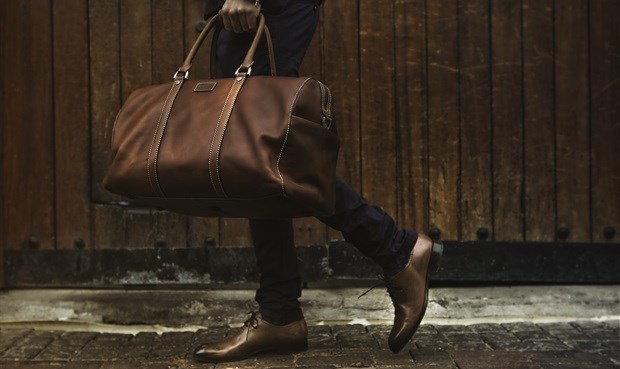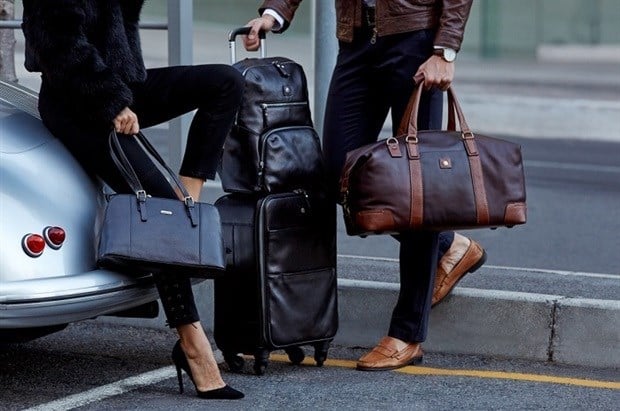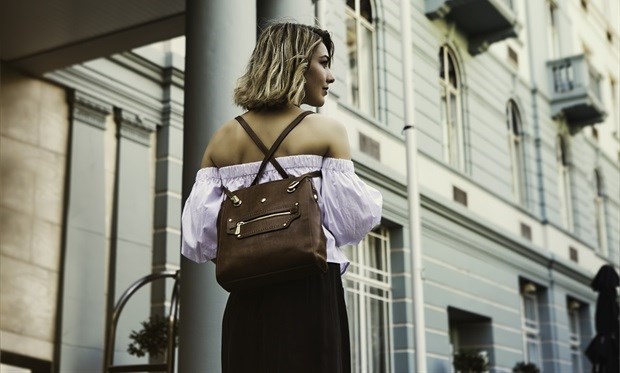
Top stories






More news


Marketing & Media
Ads are coming to AI. Does that really have to be such a bad thing?














Revered South African leather goods company, Jekyll and Hide, has surprisingly humble beginnings. Founder and designer Bernard Bultemeier cut his fashion teeth in hawker trading, and it was within the buzzing informal setting of local weekend flea markets that Jekyll and Hide found its first customers.
When Bultemeier set out to introduce a new leather brand into the SA market, it was important to him that the name not be Italian; and at 2am one morning he settled on Jekyll and Hide – a play on Dr Jekyll and Mr Hyde.
Officially established in 2002 and falling under the International Colours stable, the Jekyll and Hide business soon increased in sophistication, and Bultemeier expanded into the wholesale market in Cape Town, and Johannesburg shortly after.
Today, any local leather lover worth their salt is familiar with the name and its association with authentically-crafted, high-quality products.

Jekyll and Hide's initial focus on jackets and small leather goods like wallets grew to include larger bags such as briefcases, backpacks and luggage.
For Bultemeier, the concept of value has always driven his business strategy. “Price is short-lived. If you're selling a product for R5,000 like we do, customers need to see value in it.
“Leather is a commodity. I can make you a cheap leather bag, or I can make one from crocodile skin and charge you R95,000. When it comes to the leathers, linings and fittings that I select and the goods that we produce, I choose them all based on value. It’s a value for money proposition – to get maximum use out of something that you'd be proud to use and to wear.”
Bultemeier is a stickler for quality and craftsmanship, and the leathers used for Jekyll and Hide products are procured from the finest leather merchants scattered across the globe.
“We source all our own leathers from Brazil, Argentina, India, Turkey or locally, and then they’re shipped to the various factories we use in China and India. We've just bought a factory in Durban as well, so whatever we can make locally at a cost-effective price we will, and whatever we can't we'll import.”

After 5 years of operation, Bultemeier set his sights on marketing the brand in the UK, and opened an office in London. “In South Africa we're pretty isolated in that we've only got a limited number of brands. I think in SA we rank up there as one of the best in our category. I wanted to see how I could compete on an international stage.”
Owing to a greater presence of competing brands with swollen marketing budgets, he admits that business abroad has not been smooth sailing. “We don’t have the volume of people in South Africa to allow many big brands to come here and make a massive impact. Here, Jekyll and Hide is a relatively big fish in small pond. In the UK, we’re like a tadpole in the sea.”
Nevertheless, even with Jekyll and Hide’s stellar reputation back home, the founder says that the company has felt the effects of the depressed local economy and low consumer spending.
“We've definitely felt the pinch economically, especially over the last two years. We've been selling bags now for 16 years and we’re getting bags today that we sold to customers 10 or 12 years ago and they're saying ‘please can you fix this, it's damaged’. In previous years they would have just bought a new one. Consumers are holding back a little bit and hesitating to make purchases.”

Consumers are not the only ones apprehensive to commit. Bultemeier says that due to times being tight, the independent retailers that stock Jekyll and Hide products are not as adventurous as they once were. “Before, we would bring in new ranges and they were happy to buy into the entire set, but now everybody is so scared. It's a matter of ‘I love that bag but I don't want to touch it because I don't know if customers will buy’.”
Bultemeier says the changing retail dynamic, especially in the shopping centre space, also comes into play. The lion’s share of Jekyll and Hide’s retail clients are independents, but many of them are struggling to stay afloat.
“Many independent retailers can't make a living anymore because rentals have gone through the roof, and landlords are not accommodating. For landlords it’s about getting the biggest return per square metre in the centre as opposed to getting a product mix inside the centres that will really entice shoppers to visit.
“So we’re almost forced to trade with chain stores, which have to report to senior management and shareholders, and so forth. Even with the proliferation of shopping centres in South Africa – one of the highest ratios of shopping centres per capita in the world – we’re still building more.

“We've got a store in Hermanus, which has a limited population, so there were lots of independent stores operating there. Then they built a shopping centre and all it did was cut the pie. It doesn't mean that because you build a shopping centre the discretionary spend in that specific town is going to increase. It's a problem.
“In the States, they’re shutting down malls left, right and centre because of oversupply and high rentals. Then there’s online shopping. I think this last Black Friday was the turning point for online retail in SA. South Africans have gotten over that tipping point, and the online industry is going to really start growing.”
Aside from the extensive network of independent retailers that stock the luxury leather brand, their full complement of products can be found online from the dedicated Jekyll and Hide online store.
In terms of product development, Bultemeier says that while the focus on jackets has dimmed somewhat, bags have exploded.
Trend insights are gleaned from the UK, and eventually see uptake locally about two to three years later. That’s why Bultemeier can say with a great degree of certainty that backpacks will soon see a surge in popularity in SA and further afield.

He says the trend towards backpacks is driven by how we commute and function. “In SA at the moment we still sell lots of briefcases, because there’s clientele here that have their own car. In the UK, for every briefcase we sell, we sell four or five backpacks. That’s because cycling is becoming big there, and that will eventually hit SA too. Laptop briefcases don't work for that sort of commute, but laptop backpacks do.”
“Also, these days we tend to carry our phones in our hands. Before you'd have your bag in your one hand and your other hand free. Now we've got phones in our hand and we're into texting, not talking. Backpacks make the most sense for that too.”
These days, Jekyll and Hide don’t pick and pack their product anymore, and instead outsource those processes to other companies. This keeps costs associated with staffing and office rental manageable as the staff complement can be kept small and warehousing is done elsewhere.
“We give them the order for the shop, we send them the picking slip, they pick it, they pack it, and then drivers deliver it to the stores,” he explains.
“We're trying make this more of a marketing company. It's all about distribution nowadays – how quickly you can get the product to market at the most cost-efficient price.”
There also may be standalone Jekyll and Hyde stores on the cards, though rollout will be kept to a minimum and will serve as more of a brand-building exercise. “We’d do it for two reasons: to expose more people to our brand, and to showcase our entire product ranges in a physical space so that people can see it and touch it.”

Using the UK as a springboard, Bultemeier hopes to grow the Jekyll and Hide brand globally. With a small distribution in Australia already the next market he’s hoping to tackle is the States.
As a frequent business traveller, the founder and designer admits to killing time in airports by counting the number of Jekyll and Hide bags he spots. It's a barometer for me,” he says, “and I've come to the conclusion that we've sold a lot of bags in South Africa. It's rewarding.”
“I love trying to work out what people are using, why they're using it, and how they're using it. I get a kick out of a bag that works. When a new product comes out I can feel it in my stomach and I’ll tell you straight away 'that is a winner'."
Reflecting on his Jekyll and Hide journey, Bultemeier says, “I think where my story differs from a lot of other people's is that our business started from literally nothing. Real grassroots trading… just buying and selling. We've done it the hard way and it's something that I think will stand the test of time. As long as we can carry on making great product.”
